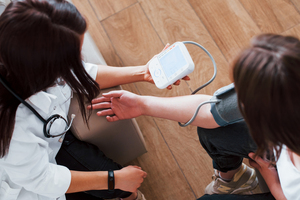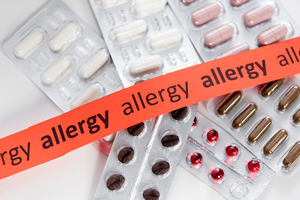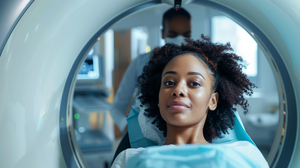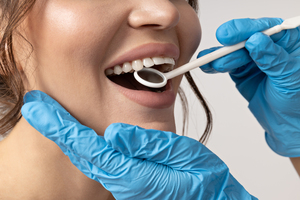Key points
- Dehydration occurs when the body loses more fluids than it takes in, affecting every system in the body, especially in vulnerable groups like children and older adults.
- Early signs of dehydration include dry mouth, increased thirst, headache, dark yellow urine, fatigue, lightheadedness, and dry or cool skin.
- Severe dehydration symptoms such as confusion, no urination for 8+ hours, dizziness, rapid heartbeat, sunken eyes, extremely dry skin, low blood pressure, and lethargy require immediate medical attention.
- Dehydration is treated with oral rehydration for mild cases and intravenous fluids for moderate to severe cases; recovery time varies depending on severity and cause.

Dehydration can escalate from mild discomfort to serious medical conditions faster than many realize. Whether caused by high heat, illness, or physical exertion, losing too much fluid can impact every system in the body — especially in children, older adults, and people with chronic health issues. Recognizing the early signs of dehydration can help prevent complications. Knowing when to go to the ER for dehydration may even be lifesaving in more severe cases.
Read on to explore dehydration symptoms from mild to severe, what to look for in both adults and children, how dehydration is diagnosed, and what kind of medical treatment you can expect.
What is dehydration?
Dehydration occurs when your body loses more fluids than it takes in, disrupting its delicate fluid and electrolyte balance. Water helps regulate body temperature, lubricate joints, remove waste, and keep organs functioning properly. When fluid levels drop too low, your body can’t perform these essential tasks efficiently.
Common causes of dehydration include:
- Excessive sweating from heat or exercise
- Fever or prolonged illness
- Vomiting and diarrhea
- Certain medications like diuretics or laxatives
- Inadequate water intake
Anyone can become dehydrated, but infants, young children, older adults, and people with chronic illnesses are especially vulnerable.
Early symptoms of dehydration
Mild to moderate dehydration is usually treatable at home, especially when caught early. The early warning signs of dehydration include:
- Dry mouth and throat
- Increased thirst
- Headache
- Dark yellow urine
- Tiredness or fatigue
- Lightheadedness or dizziness
- Dry or cool skin
If you notice any of these symptoms of dehydration in adults or children, it’s important to increase fluid intake and monitor symptoms closely.
Severe dehydration symptoms — when to seek help
Signs of severe dehydration require immediate medical attention. If left untreated, dehydration can lead to heatstroke, kidney problems, seizures, or even death. Call a healthcare provider or go to urgent care or the ER if you notice:
- Confusion, irritability, or disorientation
- No urination for 8 or more hours
- Dizziness or fainting
- Rapid heartbeat or breathing
- Sunken eyes
- Extremely dry skin that doesn’t bounce back when pinched
- Low blood pressure
- Unresponsiveness or lethargy
When should you go to urgent care or the ER for dehydration?
Knowing when to seek dehydration urgent care or emergency help can make a big difference. Here’s how to decide:
Urgent care
Visit urgent care if:
- Early signs aren’t improving after drinking fluids for several hours
- You're experiencing nausea, mild vomiting, or diarrhea that’s interfering with hydration
- You're unable to keep fluids down but not yet experiencing severe symptoms
- You have a low-grade fever with dehydration symptoms
Urgent care clinics can provide oral rehydration solutions or administer IV fluids if needed.
Emergency room (ER)
Head to the ER if:
- You or your child show signs of severe dehydration
- Vomiting or diarrhea has persisted for more than 24 hours
- There are signs of heatstroke, such as a temperature over 103°F, confusion, or dry skin despite overheating
- An infant has a dry diaper for 6+ hours, sunken fontanelle (soft spot), or weak cry
How is dehydration diagnosed and treated?
When you visit a healthcare provider for dehydration, they’ll assess your condition through:
- A physical exam (checking skin elasticity, heart rate, breathing, and alertness)
- Vitals monitoring (blood pressure, temperature, oxygen levels)
- Urine tests to check concentration and kidney function
- Blood tests to evaluate electrolyte levels and organ health
Common medical treatment for dehydration
- Mild cases of dehydration are often treated with oral rehydration using water and electrolyte-rich drinks.
- In moderate to severe cases of dehydration, intravenous (IV) fluids may be required to replenish fluid and electrolyte levels quickly.
Recovery time depends on the severity and cause. Most people recover within a few hours to a day, while others — especially older adults or those with chronic illnesses — may require longer observation or follow-up care.
Get care for dehydration at urgent care near you
Recognizing dehydration symptoms early can help you avoid serious complications. If you or a loved one is showing signs and symptoms of dehydration that aren’t improving with fluids at home, urgent care offers a fast and convenient option for getting medical help. Many urgent care centers can provide IV fluids on-site, reducing the need for a long ER wait.
Book an appointment at an urgent care near you using Solv and get the care you need to recover quickly and safely.
FAQs
What is dehydration and who is most at risk?
Dehydration occurs when your body loses more fluids than it takes in, disrupting its delicate fluid and electrolyte balance. This can impact the body's ability to regulate temperature, lubricate joints, remove waste, and keep organs functioning properly. While anyone can become dehydrated, infants, young children, older adults, and people with chronic illnesses are especially vulnerable.
What are the early symptoms of dehydration?
Early symptoms of dehydration include dry mouth and throat, increased thirst, headache, dark yellow urine, tiredness or fatigue, lightheadedness or dizziness, and dry or cool skin. If you notice any of these symptoms, it’s important to increase fluid intake and monitor symptoms closely.
When should I seek medical help for dehydration?
Severe dehydration requires immediate medical attention. Signs of severe dehydration include confusion, irritability, or disorientation, no urination for 8 or more hours, dizziness or fainting, rapid heartbeat or breathing, sunken eyes, extremely dry skin that doesn’t bounce back when pinched, low blood pressure, and unresponsiveness or lethargy. If you notice these symptoms, you should seek medical help immediately.
How can I decide between going to urgent care or the emergency room for dehydration?
If early signs of dehydration aren’t improving after drinking fluids for several hours, you're experiencing nausea, mild vomiting, or diarrhea that’s interfering with hydration, you're unable to keep fluids down but not yet experiencing severe symptoms, or you have a low-grade fever with dehydration symptoms, you should visit urgent care. However, if you or your child show signs of severe dehydration, vomiting or diarrhea has persisted for more than 24 hours, there are signs of heatstroke, or an infant has a dry diaper for 6+ hours, sunken fontanelle, or weak cry, you should head to the ER.
How is dehydration diagnosed and treated?
Dehydration is diagnosed through a physical exam, vitals monitoring, urine tests to check concentration and kidney function, and blood tests to evaluate electrolyte levels and organ health. Mild cases of dehydration are often treated with oral rehydration using water and electrolyte-rich drinks. In moderate to severe cases, intravenous (IV) fluids may be required to replenish fluid and electrolyte levels quickly. Recovery time depends on the severity and cause.









